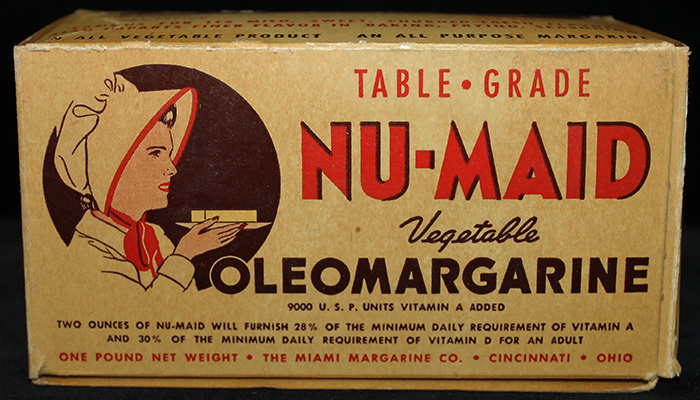This is going to be more of a life pro tip, but trying to reach the largest audience here.
Just had a frantic neighbour knocking at my door saying there is a fire in her oven.
I was over there in under 60 seconds with the fire extinguisher. There was a pot of oil on fire wedged between the element and the rack. No way to quickly and safely remove it, so I blasted it.
If I had tried to remove the pan, it’s likely it would have ended up spilling burning oil everywhere and making the situation much worse. Now they just have a house full of dust to clean.
Will replace our extinguisher today and am considering buying a few more to gift this Christmas.
I have one rated for grease fires in the kitchen and one rated for Magic Computer Smoke next to the electronics.
(I live in a small apartment, so two is probably already overkill).
Also, second pro-tip from a Firefighter friend: Regularly pick up your Fire Extinguisher and flip it upside down and tap the bottom like you’re trying to get ketchup out of a glass bottle. Often the “dust” inside the extinguisher can settle for too long and when you go to use it… nothing comes out because it is all compacted on the bottom of the Extinguisher. So occasionally making sure everything is loose and ready to go is key. He suggested to me every few months to do it.
Also, remember all the stuff that kills small fires: salt, baking soda, a wet rag, a sponge, a bigger pot blocking the oxygen. Many people freak out for a minute while the fire grows out of control.
Assess the situation, but a good plan now is better than a perfect plan in a minute. No don’t pour water on oil or electric fires. Use the baking soda, salt, or pot holder that’s right next to the stove.
Solid suggestions!
I don’t know why it gave me a memory of the server room at a building I worked at. If there was a fire, you had to leave the room immediately because the main fire suppression device was something that pumped all the oxygen out of the room, depriving the fire of the oxygen that allows it to burn.
Meaning, if you hung around in that room after the fire alarm went off, you’d have a good chance of getting stuck in there and dying of asphyxiation.
Good ol’ halon systems!
LOL, my buddy back in 2000 named his system “Nuclear Halon” for just that reason.
The Big Red Button behind the plexiglass flip door.
Not flour, though! A friend once had food in a pot on the stove catch fire, and she knew about putting salt or baking soda on oily fires, but in haste, grabbed the flour, instead. On the bright side, the resulting explosion did put the fire out by consuming the oxygen, but it cracked the kitchen window.
For a fire in a pot or pan, having a well-fitting lid ready, and sliding it on, is most effective. Make it a habit as you get out the pan to get out a lid that completely covers it, and put it within reach.
Edit to add: I have a fire extinguisher on the kitchen wall as well, because sometimes the fire isn’t contained/containable. When I replaced my old unused one, I took it outside and practiced with it until it was empty, which was fun and educational.
Good tip!
Is this why my old extinguisher at camp just spits white dust?!
Tested it the other day, because why not? It’s there because it’s old, and the place is literally a swamp, nothing going to burn down.
One beside the bed, one in the kitchen, and one near the front door.
For oven fires turn off the oven and shut the door. An oven is a fire box, it will contain the blaze. The oven probably isn’t completely airtight but it should be close enough that the fire will use up the oxygen and extinguish itself quickly (the vent will pull hot air out but not let cooler air back in). Let it sit for a while and cool after you can’t see flames anymore to make sure the fire doesn’t reignite when you open the door and let fresh air in. Fire can damage the elements and seals so the oven needs serviced before being used again but so long as the fire was only inside the oven it should be repairable.
Make sure your fire extinguisher has the right rating for the place it is stored. For the oven grease fire, and most kitchen fires, a class K extinguisher would have been most appropriate because it is designed to put out cooking oil fires with minimal splashing.
https://www.nfpa.org/news-blogs-and-articles/blogs/2022/08/26/fire-extinguisher-ratings
So anyway, you started blasting.
Also “on hand” means easily accessible in case of a panicked emergency. Not buried behind the bikes in the garage. Not stowed in a drawer because “it didn’t match the decor.”
And replace them regularly even if you never use them. The only thing worse than not having a fire extinguisher is thinking you do have one and finding out it doesn’t work at a critical moment.
Fire extinguishers are worthless to most. Now hear me out. Most fire extinguishers go bad after ~a year of immobility and tend to be kept for several years after. When a fire breaks out, every second matters and fetching a worthless fire extinguisher costs time that no one has.
If you buy someone a fire extinguisher, you have to take on a degree of stewardship and explain the issue. You become fire extinguisher tech support. Set a calendar for them to periodically turn their fire extinguisher or it’s a paperweight. My father burned down the kitchen in an oil fire but luckily had a hand-me-down fire extinguisher to frustratedly shake for a minute. If you give, expect to educate.
I don’t think that’s true anymore. It used to be the case in older types that the powder inside would clamp after some time but the new powders don’t do it. You just have to make sure that the gas is still pressurized inside.
Every fire extinguisher we use at my workplace has to be recertified yearly, even the brand spanking new ones
Fire guy doing it has told me that even modern ones still can go bad from just sitting there for a year
I’ve just looked it up and as I’ve said: extinguisher can last up to 20 years and you only have to check the gas pressure and if there is any psychical damage. But I know that in old extinguishers the powder inside could clamp up and proper way to use it was to shake it first. Hasn’t been the case for quite some time now.
Good tips, but FWIW ours has been sitting around for probably over a decade and it worked just fine
Yes. I rent and my state requires that my landlord have so many based on the number of rooms and square footage.
Glad it worked out for you. For future reference, there are additional steps for grease/oil fires in the kitchen:
Turn off stove
Cover with lid
Then smother with the extinguisher, or baking soda or salt if you don’t have an extinguisher handy. Never water.
The first two steps cutoff energy and oxygen, and will minimize the splatter that the extinguisher causes.
Unfortunately, there was no way to get to the pot, for some reason it was wedged between the rack and the element, so no chance of covering it
By law, apartments like mine should have one, so I guess there may be one somewhere. If there would actually be a fire, I wouldn’t know where to look though
Figure out where it is ASAP or get one for yourself.
Got one per floor. One of the first things we did when we bought a hoose was test all of the fire alarms and buy fire extinguishers.
Good thing we did too as two of the fire alarms did not work.
Hoose’s are overrated.
Ur they aye
If you store extinguisher where fire goes you might not be able to get when fire. Careful.
In every room, I have either a fire extinguisher or a bucket of sand. I am biased in favor of the sand though.
Don’t learn the hard way that fire extinguishers have expiration dates. Don’t be like me.
Yes. A large one wall mounted in a central location. A small one and a fire blanket in the kitchen.
No, I have four!
deleted by creator
Yes, one per utility space (basement, garage, laundry room), kitchen, up near bedrooms.
Be sure your kitchen one is appropriate for grease fires
I have three. Thanks for spreading awareness. Everyone needs a few around the house.










